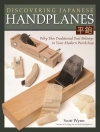In ‘The Young Housekeeper’s Friend’ by Mrs. Cornelius, readers are given a comprehensive guide to household management, cooking, cleaning, and etiquette in the mid-19th century. The book is written in a practical and instructional style, with detailed advice on meal planning, budgeting, and the proper care of household items. Mrs. Cornelius includes recipes for traditional dishes and tips for hosting guests, making this a valuable resource for young women managing their own households during this time period. The inclusion of moral and religious guidance reflects the values of the era, adding an interesting cultural context to the work. Mrs. Cornelius’ attention to detail and emphasis on domestic skills make this book a fascinating glimpse into Victorian domestic life. Mrs. Cornelius, likely drawing on her own experiences as a homemaker, wrote ‘The Young Housekeeper’s Friend’ to provide practical guidance to young women taking on the responsibilities of managing a household. Her expertise in household management is evident in the detailed advice and tips she provides throughout the book. By sharing her knowledge, Mrs. Cornelius aims to empower young women with the skills and confidence needed to successfully run a household. I recommend ‘The Young Housekeeper’s Friend’ to readers interested in domestic history, culinary traditions, and gender roles in the mid-19th century. This book offers valuable insights into the daily life and challenges faced by young housekeepers during this time period, making it a compelling read for those interested in social history and domestic studies.
Sobre el autor
Mrs. Cornelius, known less formally as Mary Hooker Cornelius, was an influential author particularly recognized for her contributions to domestic literature during the 19th century. Her seminal work, ‘The Young Housekeeper’s Friend’ (1846), is a compendium of culinary knowledge, household management, and general domestic guidance aimed to aid those embarking on the endeavor of keeping a house. This text reflects the cultural milieu of the time, emphasizing the role and responsibilities of women within the domestic sphere. Mrs. Cornelius’s book provides not only recipes but also wisdom on how to manage a household economically and efficiently, a subject that was critical in an era when women were primarily homemakers and caretakers. Her writing style combines practicality with a didactic tone, seeking to educate and empower young housekeepers in an accessible manner. The literary merit of her work is found in its detailed portrayal of domestic life in the 19th century and its influence on the genre of domestic manuals, which saw a surge during that era as a reflection of societal norms and expectations. While less is known about her personal life, Mrs. Cornelius’s book remains a significant artifact of domestic literature, continuing to be of interest to scholars studying the historical aspects of home economics and the role of women in society.












